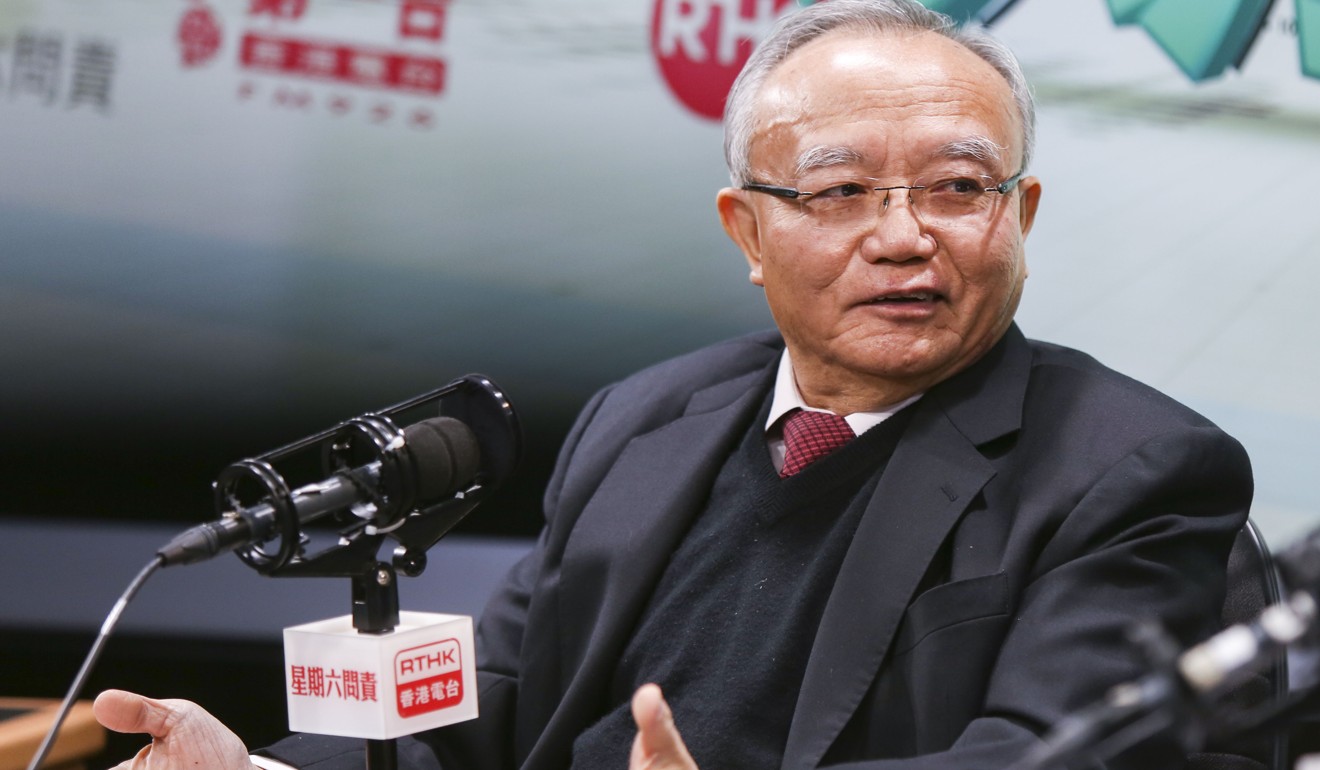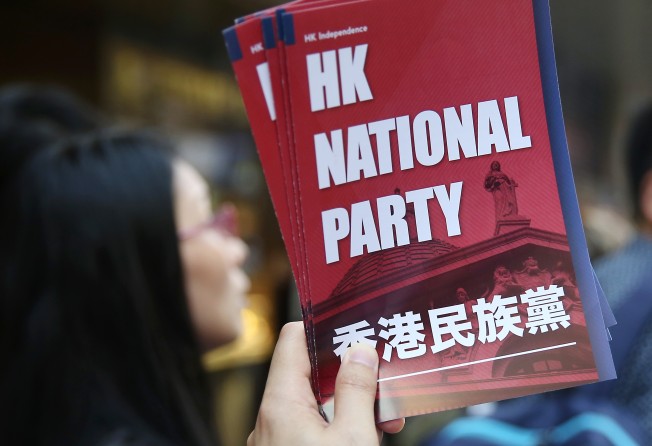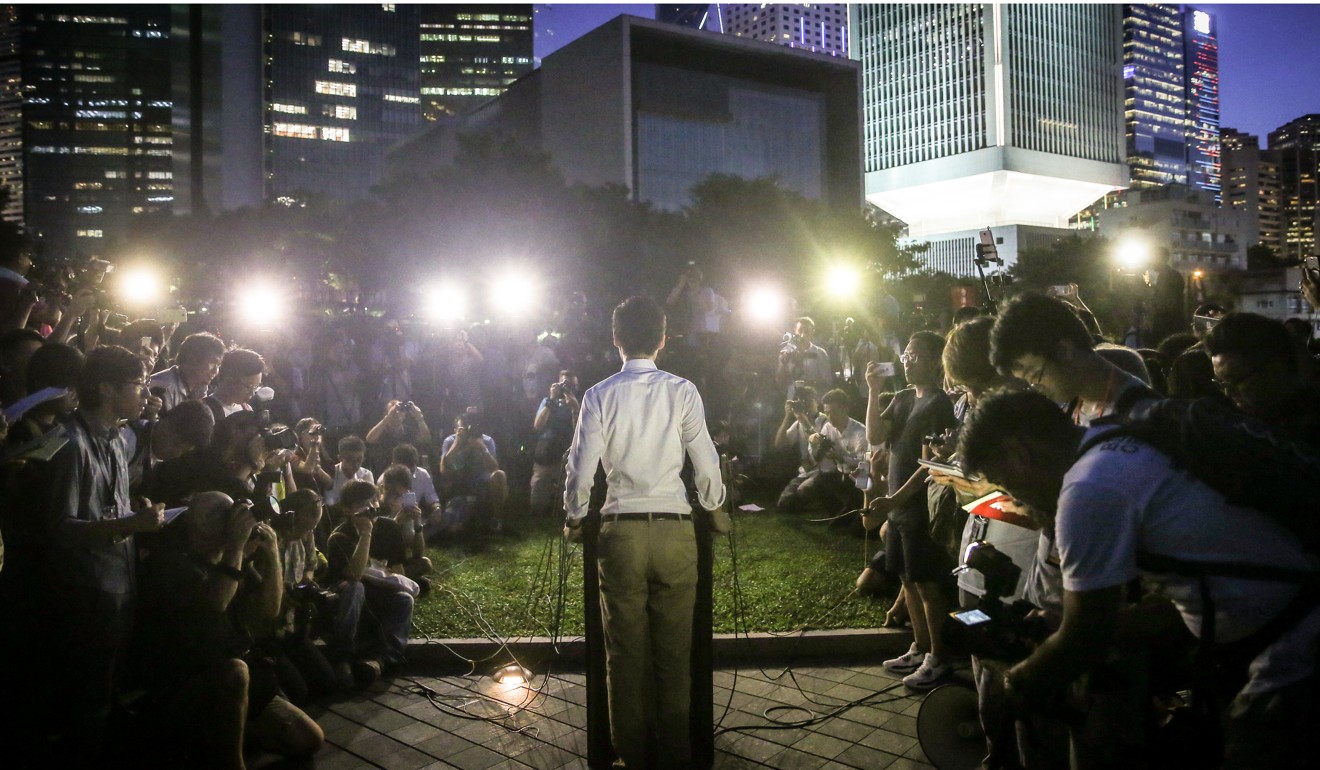
Why Hong Kong should not believe ‘Beijing man’ Lau Siu-kai’s take on the troubles of a separatist party
Alice Wu says his suggestion that the ultimatum against the Hong Kong National Party resulted from Beijing’s pressure on local officials raises questions beyond the fate of a minor political party. Those questions include whether his voice should carry the weight that it does

Academic and professor Lau Siu-kai has never been a professional politician, but one could argue that he is Hong Kong’s most skilled political player. For one, he has enjoyed unparalleled political longevity.
Lau has been active in every period of the city’s relatively short history as a special administrative region. He is like the photobomber who makes it into every political snapshot of this city. His opinions are sought after and he gladly volunteers them. And if we spend time dissecting his many statements, we would see that his genius lies in his mastery of operating in the realm of vagueness and ambiguity.
His political clout is obvious. He has outlasted any of this city’s chief executives, and done so while being critical of them, even when he was head of the government think thank, the Central Policy Unit. Lau has accused former chief executive Leung Chun-ying of having a “Beijing problem” due to Leung’s close ties with mainland authorities.
The irony is, Leung’s “problem” is also Lau’s – except that the professor has used it to his advantage. When Lau speaks, it is understood he speaks for Beijing, though it is never clear who in Beijing he is speaking on behalf of. What is clear is he has never been “just an academic”.

Lau is skilled in blurring the lines. And in a 2014 interview with the Post, he demonstrated just how shrewd a political operative he is. He dismissed an accusation that he was doing Beijing’s bidding with “I was responding to questions raised by [interviewers] and explaining according to my own understanding … they weren’t necessarily entirely representative of the [central] government’s views” (emphasis mine).
“Weren’t necessarily entirely representative” is as ambiguous as it gets. Even his current title – vice-president of “semi-official” think tank, the Chinese Association of Hong Kong Macau Studies – is masked in political mystique. “Semi-official” is “sometimes official, sometimes not”, and it’s up to you to guess.
Here’s what Lau said about his role: “As a vice-president of the association, it is my responsibility to explain things to Hongkongers, so as to foster mutual understanding.” How much of what Lau says is representative of Beijing’s views, and how much is him “advising” out loud?
The problem with Lau’s politicking is that it does not foster mutual understanding. Keeping people guessing creates misunderstanding and exacerbates distrust – not the best formula for social harmony.

And that’s why we must be very careful when Lau “speaks his mind” on matters of grave importance, like his comments on the Hong Kong National Party, which has been given a 21-day ultimatum to contest an unprecedented ban by the government.
Lau is correct in saying that the separatist party is “not a significant political force”. What is worrying is his claim that the government “was acting under pressure to show Beijing it was serious about protecting national security and that the government has to demonstrate its determination and courage to safeguard national security and territorial integrity”.
It is worrying because we are talking about the survival of “one country, two systems”, the bedrock principle of Hong Kong’s Basic Law.
Watch: What does Xi Jinping think of ‘one country, two systems’?
If what Lau said is true, it would be a new way for Beijing to implement its “comprehensive jurisdiction” over the Hong Kong SAR. This new norm apparently involves Beijing’s demands for demonstrations of “determination and courage” that prompt Hong Kong’s chief executive and their officials to constantly look for ways to prove themselves and seek validation from Beijing.
It is ridiculous that Lau would consider the Hong Kong government’s move to ban the Hong Kong National Party to be a demonstration of its loyalty to Beijing – by picking on a political party that he himself acknowledged to be no significant political force.
Lau’s intentions behind his words should be questioned, not only by Hongkongers, but also by those residing in the halls of power in Zhongnanhai.
Alice Wu is a political consultant and a former associate director of the Asia Pacific Media Network at UCLA